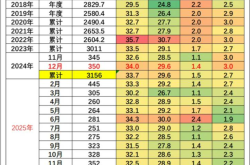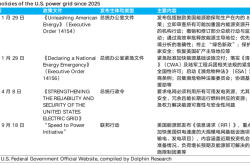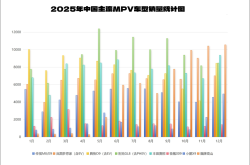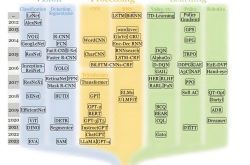Can Lei Jun's "Return Speech" Cure the "Anxiety" of New Forces?
![]() 07/24 2024
07/24 2024
![]() 759
759
On July 19th, during his annual speech themed "Courage," Lei Jun spoke for three hours, sharing his three-year journey and mental evolution in auto manufacturing. However, three hours clearly wasn't enough for Lei Jun, as he held a return live broadcast event on July 23rd.
This return live broadcast was also streamed simultaneously on Diantong Video, attracting over 200,000 viewers in the two-hour session. On Douyin, the original platform for Lei Jun's live broadcasts, nearly ten million people tuned in, showcasing Lei Jun's immense popularity, especially considering it was a return broadcast held in the evening.
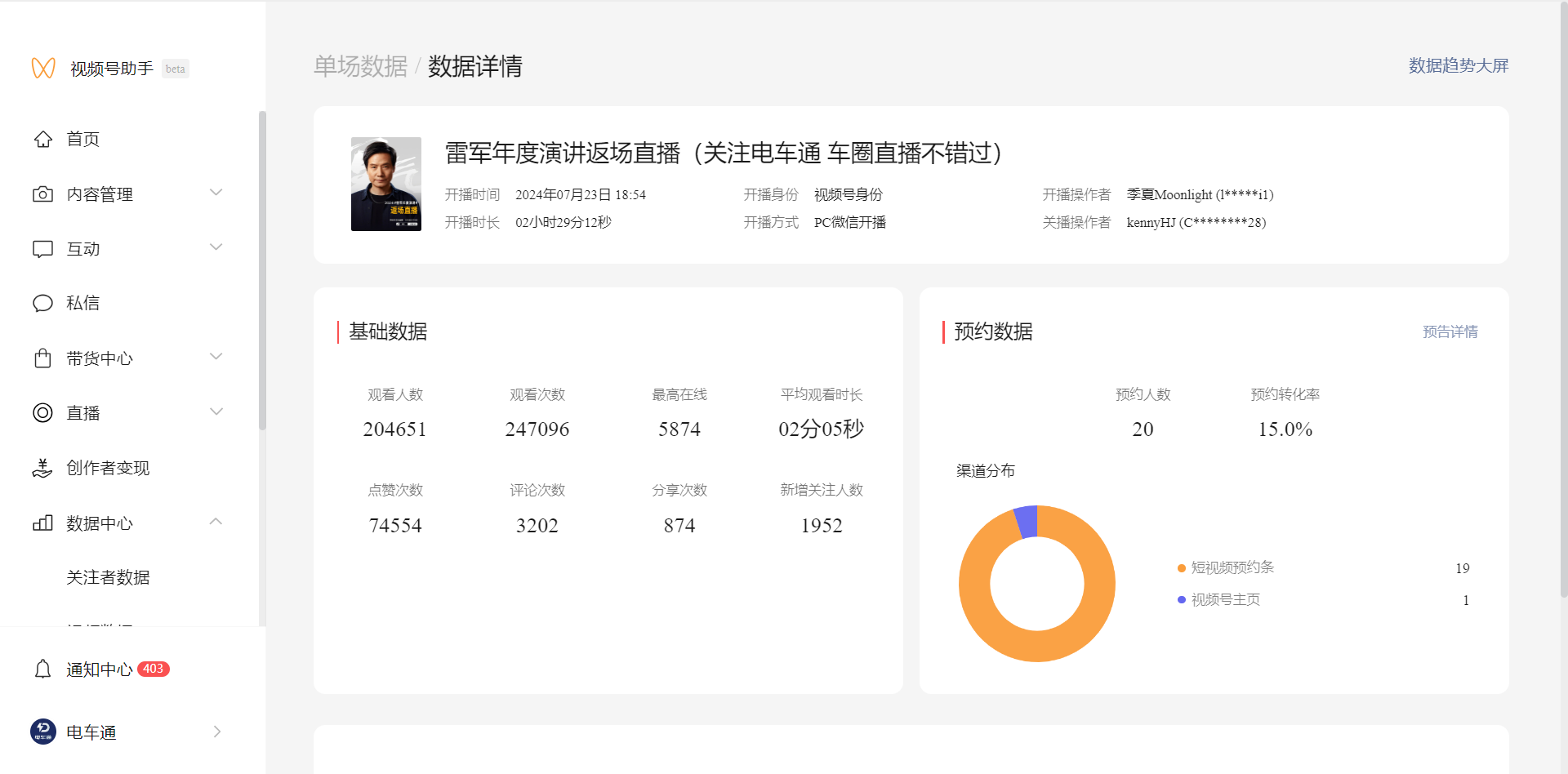
Compared to his previous speech, Lei Jun emphasized the power of courage and action even more during this live broadcast, delving into the doubts Xiaomi faced from the eve of auto manufacturing until today, and why Xiaomi persevered amidst countless negative articles to successfully launch the Xiaomi SU7.

Compared to his solemn speeches, Lei Jun seemed more relaxed during this live broadcast, recounting past events with ease. Anecdotes about Xiaomi's auto manufacturing journey concentrated on the first half, including amusing stories like the "arduous persuasion" from a supply chain leader and netizens' misunderstanding of Xiaomi's assembly capabilities. These stories, along with the previous speech, flesh out Xiaomi's decision to enter the automotive industry.
For Lei Jun's fans and Xiaomi Motors' users, this return speech is ample conversation material after meals. For competitors still struggling in the market, Xiaomi Motors' determination in the face of doubts may also serve as a reference.
Three Years of Manufacturing, Unending Doubts
During the live broadcast, Lei Jun first cleared Xu Jieyun's name. Before Xiaomi announced its entry into the automotive industry in 2020, rumors circulated that Xiaomi would manufacture cars. At the end of 2020, Xiaomi executive Xu Jieyun issued a statement denying any plans for car manufacturing, leading to Xu being criticized by netizens for over three years. Lei Jun clarified that Xiaomi indeed hadn't considered car manufacturing back then, only starting to do so in early 2021.
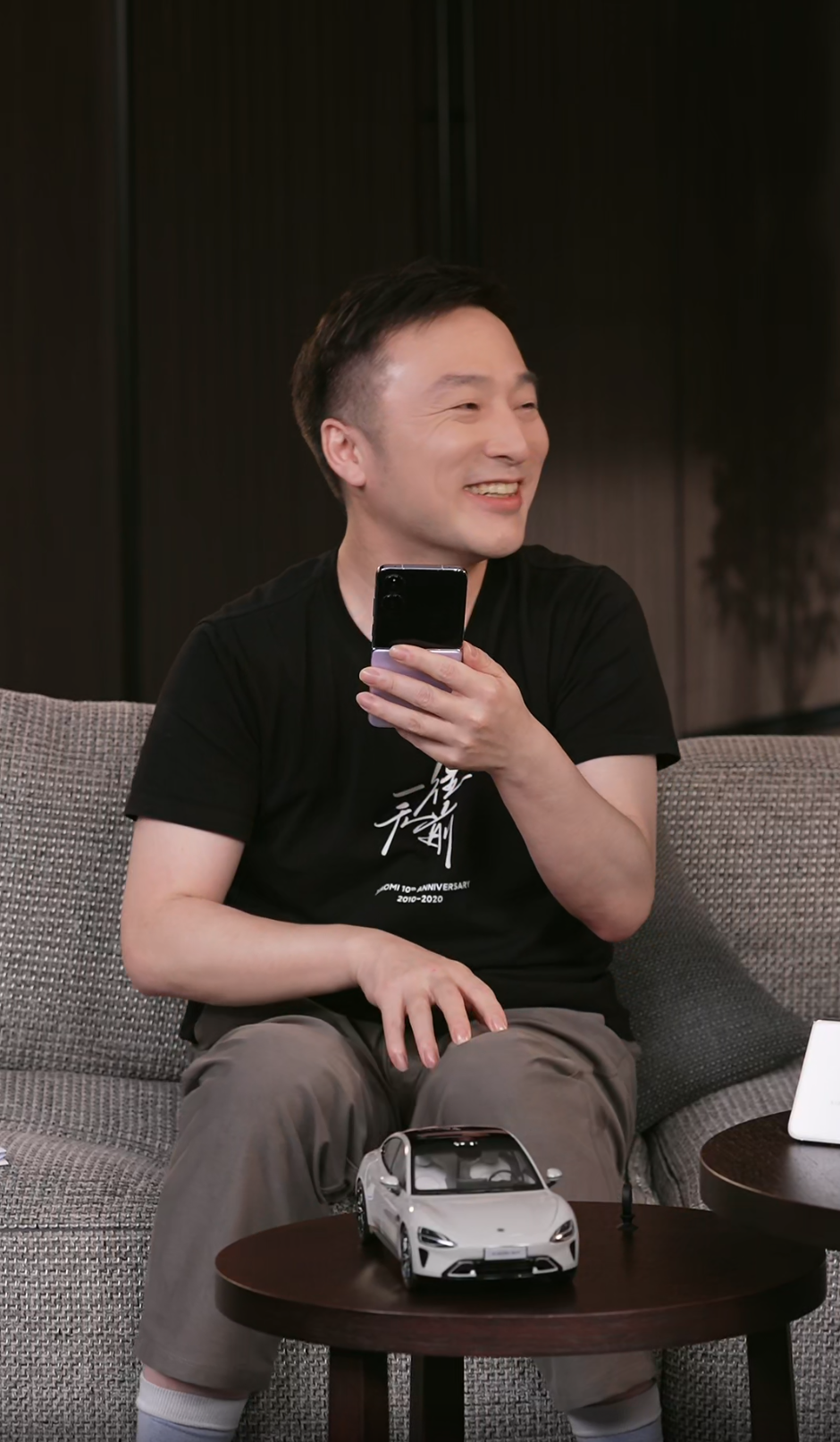
Throughout the three-year development process, doubts and rumors surrounded Xiaomi. For instance, in 2022 and 2023, online rumors claimed Xiaomi had abandoned car manufacturing, with some media and netizens alleging that Xiaomi couldn't secure the necessary licenses to produce cars.
Even after the Xiaomi SU7's launch, many netizens questioned various aspects of the car, with the most severe criticisms focused on the Xiaomi V8s motor. Xiaomi's entry into the new energy vehicle industry was relatively recent, yet it unveiled the Xiaomi V8s motor with a staggering 27,200 rpm, 578 PS, and 635 N·m of peak torque, leaving many netizens in disbelief.
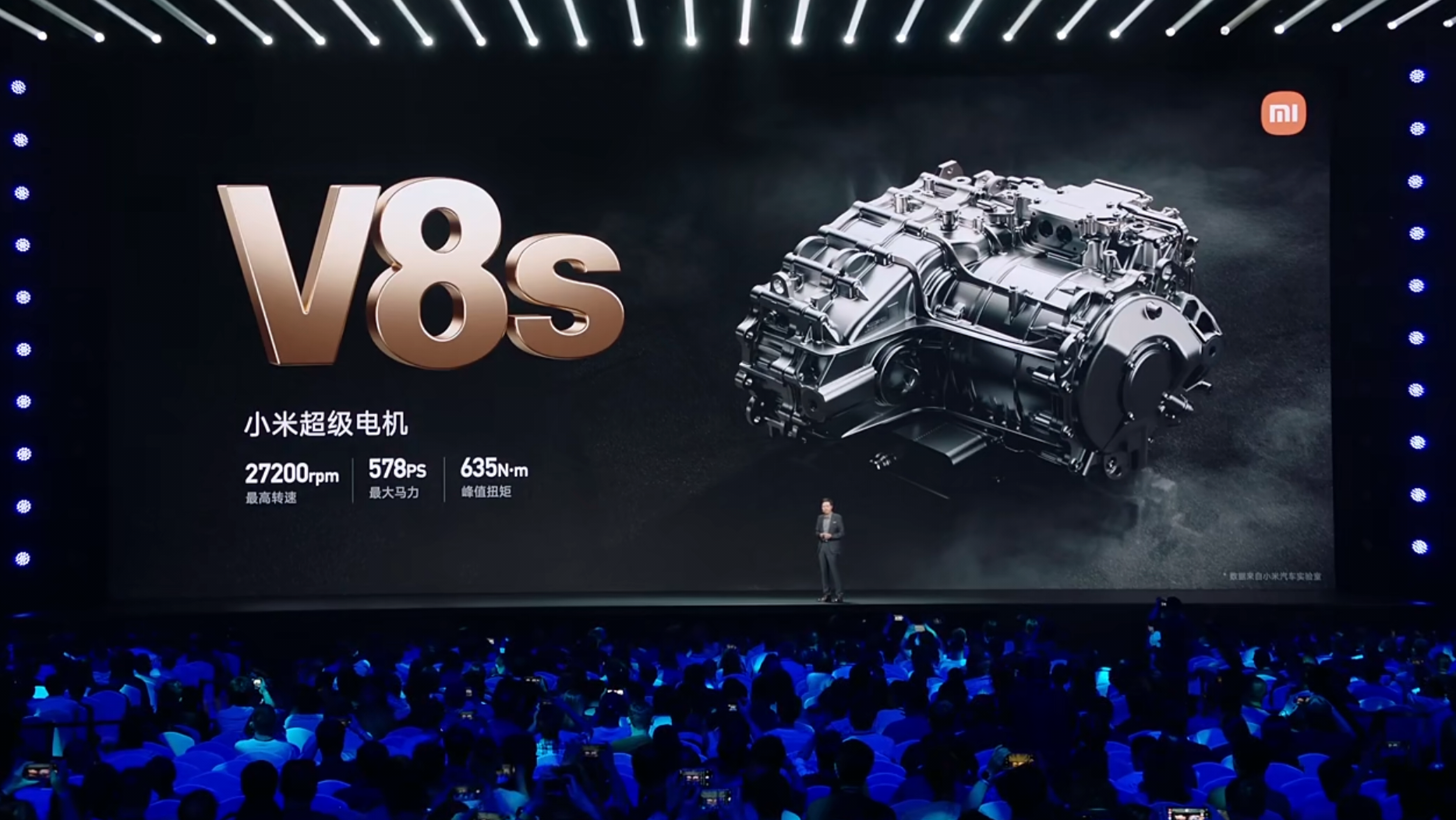
As a result, rumors spread that the Xiaomi V8s motor came from Huichuan Technology. Faced with overwhelming negative articles, Huichuan Technology, Xiaomi's partner, had to step forward to debunk the rumors, stating that they only participated in the development of the Xiaomi V6s motor, while the V8s is Xiaomi's self-developed product. This forced an upstream supplier to refute rumors, indicating the severity of the situation Xiaomi faced.
Recently, another wave of controversy hit Xiaomi, this time regarding sales. Since the start of Xiaomi SU7 deliveries, initial production shortages repeatedly pushed Xiaomi into the spotlight due to sales issues. After ramping up production, Xiaomi SU7 delivered over 10,000 units last month, significantly reducing sales-related controversies.
Recently, domestic new-energy vehicle sales figures for the third week of July were released, showing Xiaomi delivered only 1,500 units, marking a second consecutive weekly decline from the 3,700 units delivered in the first week of the month. The reasons for this are not yet clear, but it may be related to product line adjustments.
The 385th batch of the "Announcement of Road Motor Vehicle Manufacturers and Products" released by the Ministry of Industry and Information Technology on July 12th revealed that "Xiaomi" was listed, replacing "Beijing Xiaomi." Photos disclosed by the Ministry showed that the Xiaomi SU7's logo had changed from "Beijing Xiaomi" to "Xiaomi," indicating that Xiaomi had obtained the necessary licenses and was likely undergoing internal adjustments.
Industry insiders previously revealed that Xiaomi SU7 received over 10,000 orders in June, suggesting that Xiaomi doesn't lack orders and had no reason to deliberately reduce production or deliveries. Lei Jun also stated during the return live broadcast that slight fluctuations in weekly sales are normal, and Xiaomi's first-phase factory expansion has just been completed, with production capacity set to increase soon.
From pre-manufacturing to over three months after the Xiaomi SU7's launch, doubts about Xiaomi Motors have never ceased, yet Xiaomi Motors has remained resilient, never succumbing to criticism or negative articles. Xiaomi Motors' ability to overcome doubts repeatedly may be attributed to the courage and vision Lei Jun spoke of, driving Xiaomi forward with enthusiasm for auto manufacturing.
Breaking Doubts, Xiaomi Responds to the Industry with Enthusiasm
When Xiaomi announced its entry into the automotive industry, doubts arose mainly because Xiaomi was relatively late to the game. Most new forces in auto manufacturing entered around 2015, while Xiaomi only announced its plans in 2021. Initially, it seemed unlikely that Xiaomi could capture market share with its first product amidst an already established industry.
However, Lei Jun argues that it's never too late to start manufacturing cars. He believes that intelligence is the soul of automobiles, and the era of intelligent electric vehicles has just begun.
Furthermore, Lei Jun states that Xiaomi Motors' executives must obtain racing licenses, with over 100 team members already holding them, and Lei Jun himself has learned how to drift. The entire Xiaomi Motors team demonstrates an extreme passion for automobiles, playing a crucial role in Xiaomi's auto manufacturing journey.

Initially, Xiaomi invested heavily in test vehicles, with one engineer alone driving 5,000 kilometers, making two round trips from Beijing to Shanghai. Lei Jun even claims that while promoting Xiaomi SU7 at the Nürburgring had marketing value, the primary reason was to refine the technology.
Of course, mere enthusiasm and love for auto manufacturing aren't enough; a clear mind is equally important. Recently, Jia Yueting mocked Xiaomi, claiming its success relied solely on China's supply chain, making it a follower rather than a leader in the industry. Lei Jun responded on July 23rd, stating that auto manufacturing requires both adhering to the fundamentals and making unexpected moves, with many people focusing only on the latter while neglecting the former.
It's unlikely that Xiaomi Motors' first product will revolutionize the industry, but creating a product consumers are willing to accept is a success. Focusing blindly on disrupting or changing the industry can lead to unrealistic expectations in auto manufacturing.
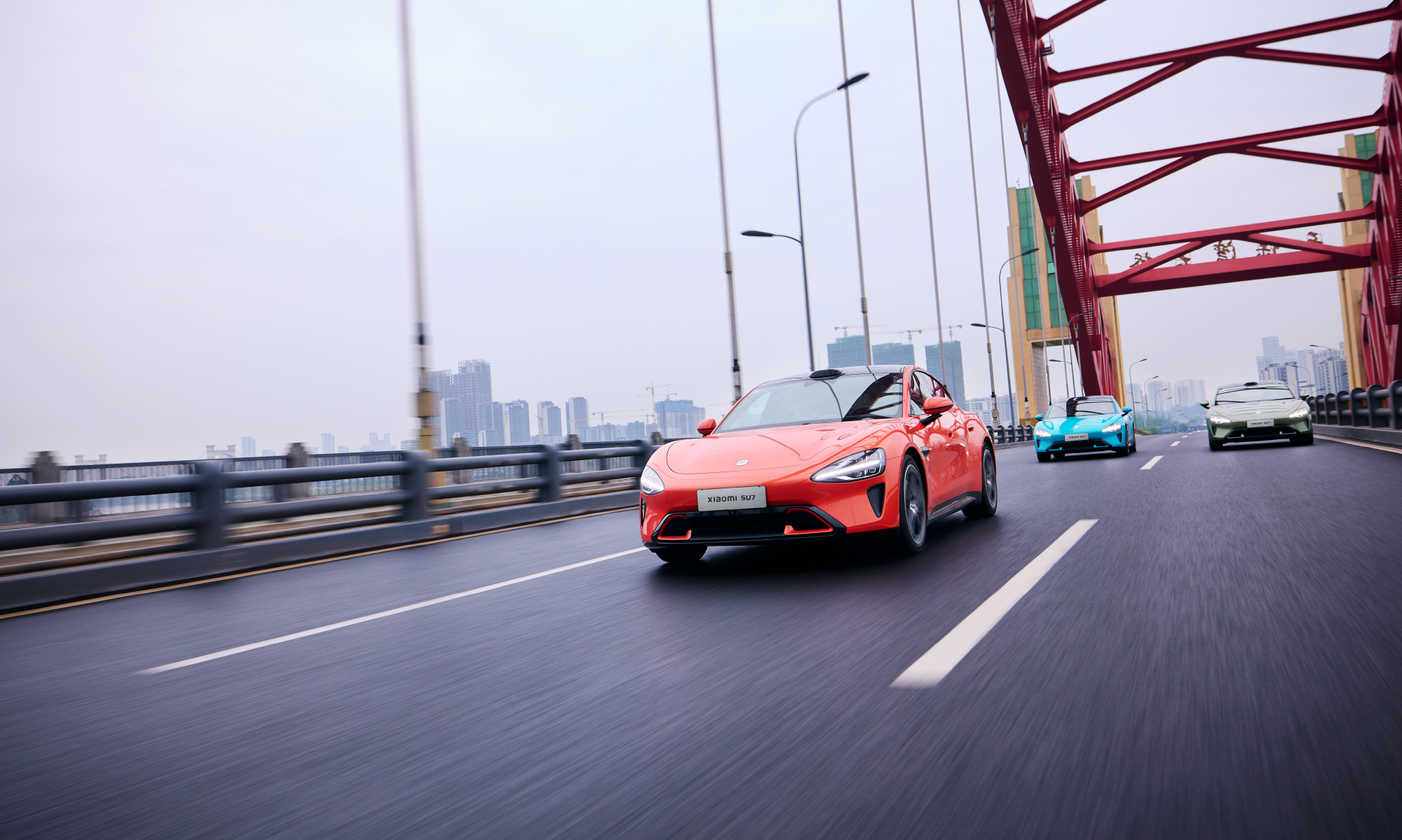
Xiaomi Motors' plan for this year is to deliver 100,000 vehicles, aiming for 120,000. Lei Jun predicts that Xiaomi Motors will achieve 100,000 deliveries by November.
I can't fully agree with Lei Jun's assertion that enthusiasm for auto manufacturing and a clear mind are the keys to Xiaomi Motors' success, as the claim that "it's never too late to start manufacturing cars" isn't entirely accurate.
Lei Jun consistently attributes Xiaomi SU7's success to the Xiaomi Motors team and all Xiaomi Group employees, overlooking crucial factors—the Xiaomi brand and Lei Jun's personal influence.
The Success of Xiaomi Motors Is Irreplicable
While Lei Jun isn't one to seek credit, there's no doubt that Xiaomi Motors' success is intimately tied to him.
In the era of the internet and smart cars, personal IPs are extremely important. Yu Chengdong once said that Lao Zhou (Zhou Hongyi) saved his team billions in marketing costs. Lei Jun, known as the godfather of internet marketing in China, has accumulated immense popularity over the decade since founding the Xiaomi brand. Many of my friends purchased Xiaomi SU7 precisely because of Lei Jun and Xiaomi's influence.
Furthermore, as Lei Jun notes, Xiaomi Group is a Fortune 500 company with channels and resources, despite its relatively recent entry into the automotive industry. Most new auto manufacturing forces rush to go public to raise funds, but Xiaomi Motors has no intention of an independent listing. Besides Lei Jun's reluctance to let others interfere with Xiaomi's auto manufacturing plans, another reason might be that Xiaomi Group has ample financial resources.
Technical prowess and precise judgments about consumer needs underpin Xiaomi SU7's success, but without Lei Jun and Xiaomi's brand influence and Xiaomi Group's financial strength, I believe Xiaomi Motors would likely not enjoy robust sales.
As the new energy vehicle industry matures, it becomes increasingly top-heavy, especially among new auto manufacturing forces, where a clear stratification has emerged. Most new forces have been eliminated in fierce competition, leaving little chance for other companies to succeed in entering the industry.
In fact, some new forces have entered the market in recent years, like Geely Auto's sub-brand Jiyou Auto, but they've garnered little attention and face slim chances of success. While Xiaomi Motors' success is undoubtedly inspiring, it's underpinned by a solid foundation that other companies can't easily replicate. Learning from Xiaomi's enthusiasm for auto manufacturing and clear-headed consideration of consumer needs and doubts is fine, but being inspired by Xiaomi to enter the auto manufacturing industry now is too little, too late.
Optimistically, Lei Jun and Xiaomi Motors can serve as a typical "success story" in the market, inspiring more peers. As competition intensifies, weaker new auto manufacturing forces must endure market pressure from traditional automakers, with many possibly standing on the brink based on sales figures.
While Lei Jun's story is irreplaceable, his persistence is worth learning from. Even taking a step back, Xiaomi's transition from mobile phones to automobiles has yielded remarkable results, with Lei Jun confidently sharing his successes in live broadcasts. How can other new auto manufacturing forces, with no less enthusiasm than Lei Jun, easily give up on their dreams?
Source: Lei Tech

